We were lucky to catch up with Alfonso Brooks recently and have shared our conversation below.
Alfonso, looking forward to hearing all of your stories today. One of the toughest things about entrepreneurship is that there is almost always unexpected problems that come up – problems that you often can’t read about in advance, can’t prepare for, etc. Have you had such and experience and if so, can you tell us the story of one of those unexpected problems you’ve encountered?
AfriKin Meets The Challenge
– Problem Being Solved
> PROBLEM : Clients and product creators often do not have the resources or technical expertise to conduct business digitally, grow their local brands or influence the public’s perception of their region and territories. Development of cottage industries and local brands are hindered by the lack of access to the international marketplace. Organizations in the U.S. and abroad are affected by hindrances to conducting business due to lack of exposure, information and resources and the inability to travel. There has also been a lack of connection between corporate advertisers and this ethnic market due to a lack of understanding of the needs to customers and service providers.
> SOLUTION : The AfriKin Marketplace solves the problem of lack of access, expertise and mobility in an unstable and uncertain world to make the undiscoverable,discoverable and creating connections for development, education, enterprise, and growth. AfriKin has a built-in audience seeking offerings from art, cultural, ethnic and recreational product lines. This has enabled the selling of products to an audience who does not have to go through the filtering process of larger platforms like Amazon. The AfriKin network allows for enterprise that educates and creates new cross-cultural business opportunities based on effective fair trade and principles of sustainability. As the AfriKin audience continues to grow connections are being made for the development and distribution of products emerging from a new multi-ethnic marketplace of commerce and kinship.
AfriKin builds a bridge linking the various ethnic groups seeking to conduct business in the new marketplace. AfriKin has brought these cultural groups into a newly developed 21st Century combination of cultures whose buying power exceeds $ 10 trillion dollars. A significant element of the combining of these cultures is the art market. Since 2015 AfriKin Founder, Alfonso Brooks has produced programming incorporating visual art from these combined groups in the form of fashion, food, performance, talks and visual art.
Our talented executive staff maintains a constant touch on the pulse of today’s popular culture while continually examining media and entertainment barometers to craft programming that consumers need and want. Our mission includes creating opportunities through bridging the gap between conscious artistry and the corporate realm which allows us to respond to the existing multi-layered market. Our team continues to be dedicated to building this legacy of building bridges between worlds.
In consideration of the rise to mainstream prominence of ethnic art, AfriKin Exhibitions feature artworks from a newly combined global community. This newly defined market known as AfriKin has organically assembled this new combined market and is developing a visual arts component that has developed throughout the progression of the following programmatic installments.
• Art And Reason (2015)
• Afrikin (Launch) (2016)
• AfriKin: Healing Our Nation (2017)
• AfriKin: Art * Culture * Community (2018)
• AfriKin: Love Is The Way Forward (2019)
• AfriKin: A New Way of Being (2020)
• Afrikin: The Fire Next Time (2021)
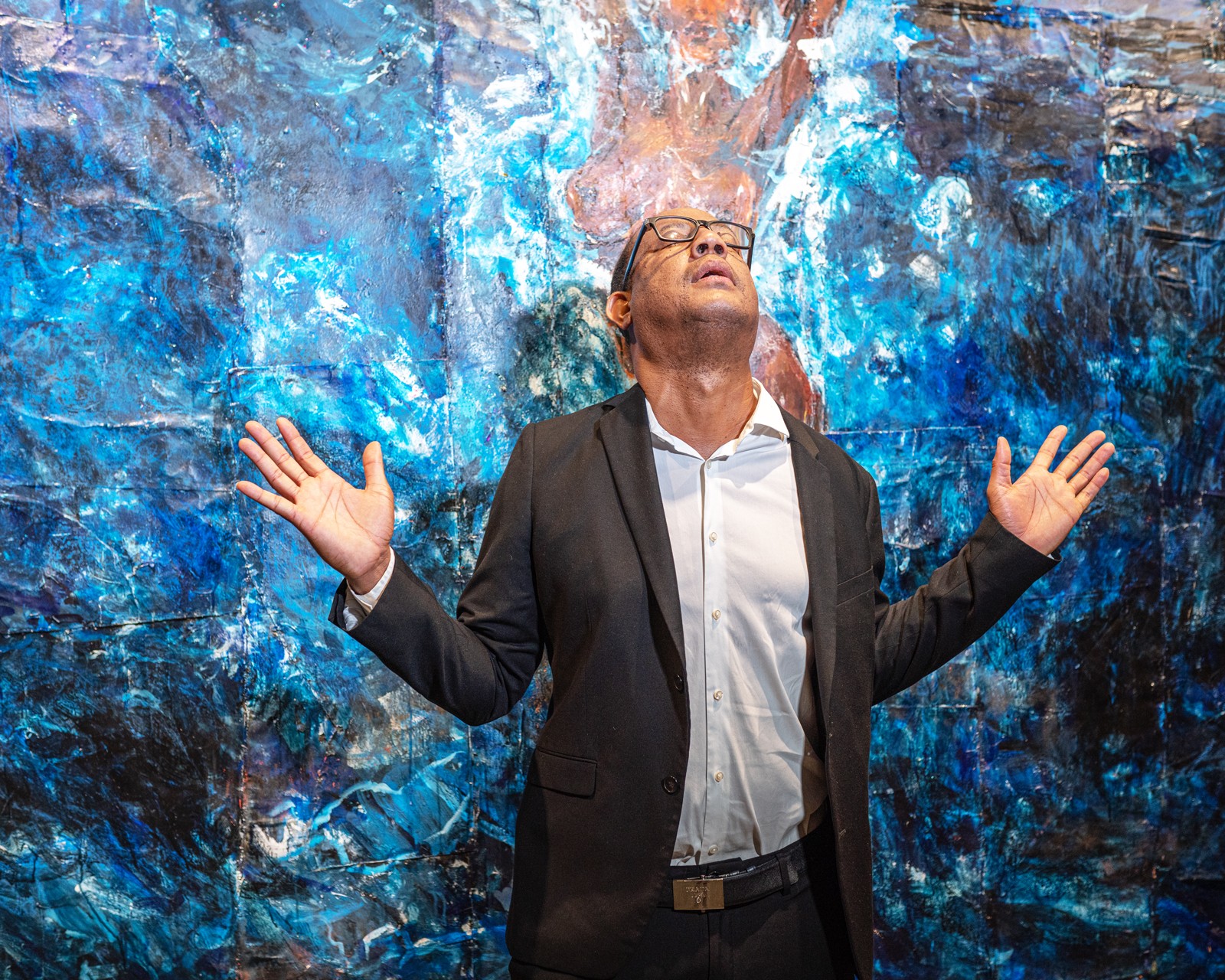
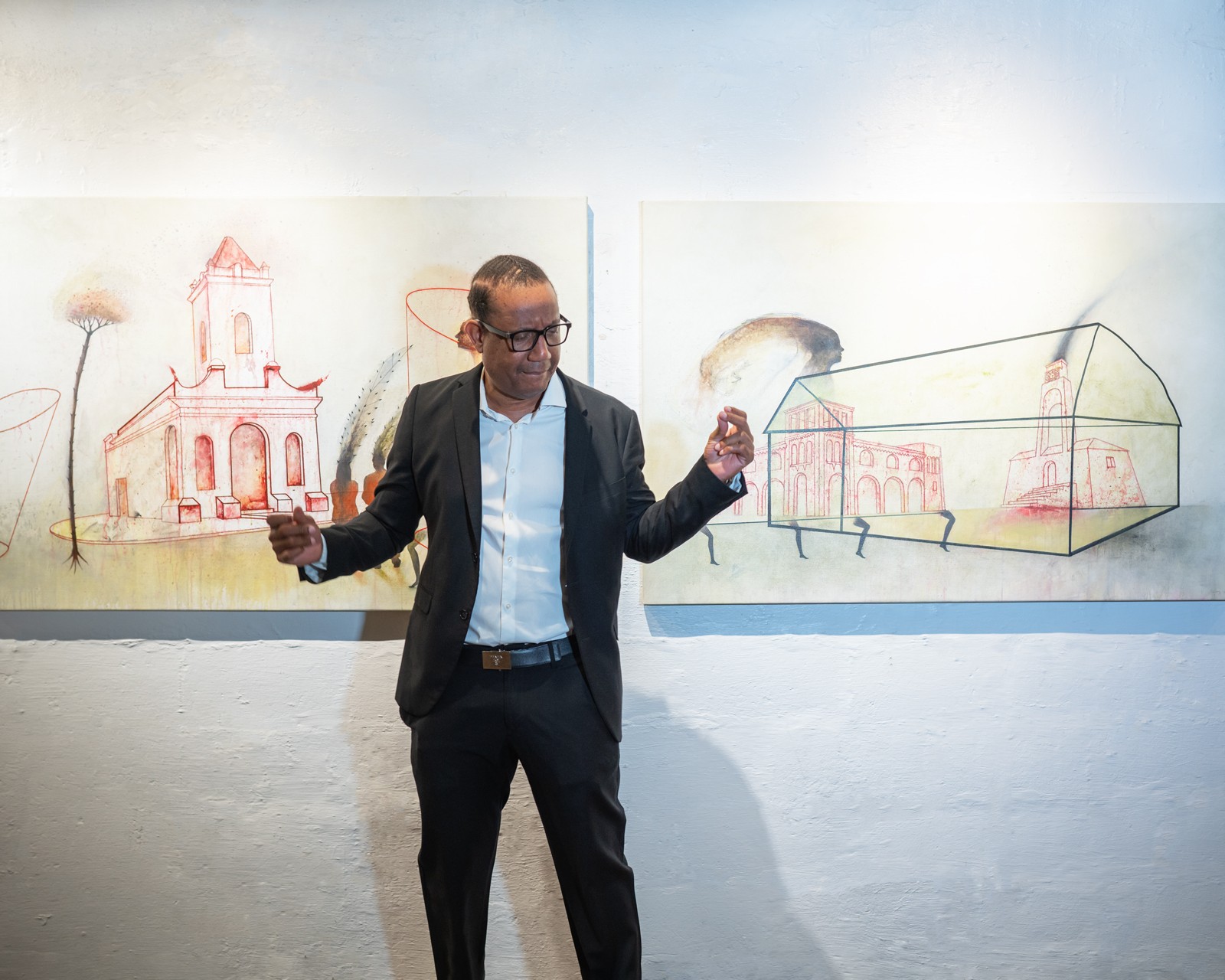
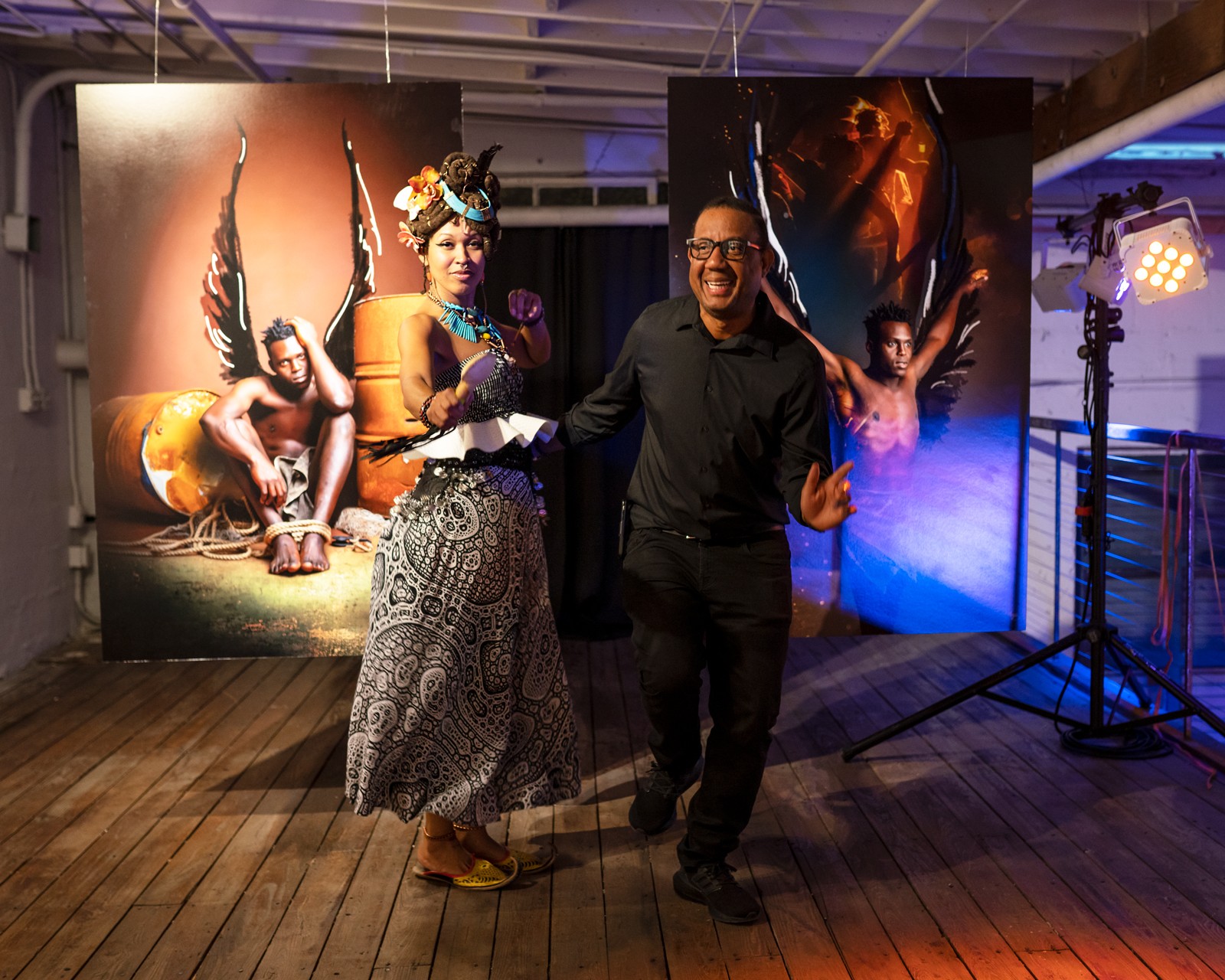

Awesome – so before we get into the rest of our questions, can you briefly introduce yourself to our readers.
ABOUT ME —————
I am a contemporary African and social entrepreneur experienced in the business of culture, promoting a positive image of Africa and people of African origin.
As Founder of AfriKin I create cultural connections through artistry and provocative conversations for more cohesive communities. I believe in a new way of being and sharing our Africanness as a basis of kinship.
With AfriKin I continue to highlight the role of art and culture in human development and enrichment. My work extends across both class and ethnic lines.
I use my voice to present a positive image of Africa and people of African origin here in the west while undergoing struggle and contemplative studies.
It is a pleasure to meet you. Let me know how I can be of service.
————————————————
WEBSITES
————————————————
🔗 Nonprofit: afrikin.org
🔗 Art Fair: art.afrikin.org
🔗 Marketplace: store.afrikin.org
🔗 Personal: alfonsobrooks.com
🔗 Radio: rockersmovmenentradio.com
🔗 Festivals: rockersmovement.com
👉🏽 LinkedIn: @alfonsobrooks
👉🏽 @afrikinnation
👉🏽 @rockersmovement
———————————————
AFROCENTRIC LEARNING AIDS
———————————————
I have created some amazing Afrocentric learning aids to help overcome the learning deficits In underserved communities. They have been recognized as some of the best adult coloring books highlighting icons of African origin.
My books 📚 include:
Adult Coloring Books
The Infinite Colors of AfriKin Vol 1-3
Activity Books 📕
Eco-Afrikin: Solidarity offers Solutions – Recognizing the Earth 🌍 within.
Journals 📖
AfriKin: A New Way of Being Self-Discovery Journal
AfriKin: King in the Mirror High Impact Productivity Journal
Novel 📕
A Race of Necessity – Afrofuturist book that addresses Black love and social issues.
————————————————
ABOUT AFRIKIN
————————————————
AfriKin is my brainchild. My reputation and success in mobilizing people are second to none. Whether to events, causes, or raising awareness of people’s power with growing support in attendance at initiatives I have had my hands in, in turning opportunities golden in the world of the arts and cultural industries has made me the perfect candidate for many endeavors.
I have hands-on control over AfriKin’s mission, direction, and financial soundness since inception. I have been in art and cultural management for the past 25 years, have amassed more than loyalty and good working relations for myself; I have been able to diversify and accumulate several consumer markets that now can be leveraged. As a result, I am able to pursue this mission to become the first ethnic multi-platform space uniquely catering to economically viable special markets.
In over a decade, I have produced several music & arts festivals with philanthropic initiatives, have created unique events in diverse markets both nationally and internationally, and have brought quality artists from an array of communities together on a global stage.
AfriKin is the Future Today!
————————————————
PASSIONS
————————————————
🎨 – Arts Integration
🧠 – Mindfulness
🎶 – Music
📚 – Reading + Writing
🌈 – Enlightenment + Spirituality
💻- Learning + Teaching
🧙🏾♂️- Entrepreneurship
🌍 – Climate Change
❤️ – Love
🧘🏽♂️- Meditation
🌱- Vegan
📊 – Vertical Markets
———————————————
LOCATIONS
———————————————
📍- Miami
📍- New York
📍- Mexico
📍- Sint Maarten
———————————————
LANGUAGES
———————————————
🇺🇸 – English
🇳🇱 – Dutch
🇪🇸 – Spanish
🇫🇷 – French
🇨🇼 – Papiamento
🖤 – Love
AfriKin History and Background
– Formed in 2016
> AfriKin is the fusion of two words. Africa + Kinship. Learning to become AfriKin involves creating an integral connection between individuals within communities, through the adoption of a “new way of being”. AfriKin promotes the human family’s relationships with the continent of Africa and based on this one-ness, formulates opportunities for positive economic cooperation.
> AfriKin is a platform delivering programming in the form of conferences, events and large festival gatherings – digital and in-person content. Team AfriKin has pivoted from producing events and large festivals developing and producing art exhibitions and virtual seminars. A brief history with a few examples of productions that reflect this evolution is as follows:
• AfriKin Art Fair (Miami Ironside, Florida): 2021
• AfriKin Pan-Africanism in a Changing World (Virtual): 2021
• AfriKin A New Way of Being (Virtual): 2020
• AfriKin Art of Conversation (Miami Beach, Florida): 2019
• Mélange (Pompano Beach, Florida): 2018
• AfriKin Art, Culture, Community (Miami, Florida): 2018
• AfriKin Healing Our Nation (Miami, Florida): 2017
• AfriKin Launch (Miami, Florida): 2016
• Art & Reason at the Museum of Contemporary Art (North Miami, Florida): 2015
• Nelson Mandela Day Denver (Denver, Colorado): 2014 – 2015
• Budweiser One Love Nutrifest (Miami, Florida): 2012
• Miami Reggae Festival (Miami, Florida): 2011 – 2021
• Bayside Rocks Festival (Miami, Florida): 2010
• WBLS Reggae Music Fest (Long Island, New York): 2008 – 2009
• Reggae Carifest (New York City): 1998 – 2007
AfriKin Marketplace is home to the contemporary African culture and luxury brand AfriKin. Our mission is to bridge Continental Africa and the Diaspora through strategic business partnerships and cultural connections. Our vision is to share our Africanness as a basis of kinship as we highlight the role of art and culture in human development and enrichment. The term AfriKin is the fusion of two words — Africa and kinship.
AfriKin offers the concept of home with merchandise that conveys the character of ethnic culture, history and art, delivering to customers content that connects to the heritage embedded in Africa and in ethnic regional territories throughout the world. AfriKin Merchandise delivers art and lifestyle content with merchandise made by African craftspeople.
Let’s talk about resilience next – do you have a story you can share with us?
The Art market, cultural industries and food & infotainment is not new. What is new is marrying Fine-Arts, culinary art and infotainment to hold the consumers captive and in turn, make the investors in this sector quite wealthy. The culinary art industry is 9.9 billion dollars and in South Florida the arts generate 1.1 billion. AfriKin combines the two industries in one setting providing thereby a unique business model.
Fine arts, fine cuisine and infotainment will now be the new socializing platform for South Florida upper mobile urbans and visitors. Since 2005 minorities and Diaspora arts have seen a rise in their market value —Christies’ auction of works by Caribbean artist Jean Michel Basquiat fetched 48.8 and 41.9 million respectively. Moreover, the multi-use layout AfriKin allows for different genres of events (corporate events, cocktails, etc.) Hence, the public has more options to choose from increasing thereby the revenue streams.
Couple this innovative concept with the rise of South Florida as the new destination for the young middle and upper classes AfriKin is the most effective concept emerging in contemporary South Florida. As founder of AfriKin I perceived this transition to be a great entry point for AfriKin which currently serves a local market which covers Miami, Fort Lauderdale and West Palm Beach. We realized that several large niche markets within this zone have been largely ignored by the traditional models. We previously capitalized on these oversights in the Fine-art industry which has been successful for the past four years. Now, we will bring the same culturally competent vision to the combination of Fine-Art/urban living and infotainment.
Competition
No competitor exists within our model of combining fine art and cultural industries.
Thus, we see AfriKin as well-positioned to stake our claim in the market because, among other important factors:
Our market and location historically have received only cursory attention from the industry, and most often that attention is perceived as superficial.
Our market has arrived at a point of critical mass—enough to affect social, political and economic trends and outcomes in South Florida and at the international level.
We have been, as a pan-minority cultural industry, an organic presence in the communities we now intend to serve in an amplified way.
We are best suited to compete for our communities’ attention and support, and for investors’ interest in reaching this lucrative market.
Key Challenges
As “the new kid on the block,” the greatest challenge AfriKin faces is distinguishing itself from the industry’s pack as a natural, viable choice for art collectors and lifestyle conscious participants alike.
And, we also must contend with the not-so-stellar history of many niche-market outlets that have attempted, but have failed at, partially doing what AfriKin aims to do. Theirs has been a record of performance that has been inconsistent and below satisfaction programmatically, or almost completely irrelevant to their audiences’ lifestyle needs and interests.
We therefore are committed to an aggressive, long-term marketing campaign aimed at creating an awareness of AfriKin’s presence in the marketplace; an internal culture of excellence that will be reflected in the consistently high-quality service value and content of our programming; and a strong sales effort predicated on the strength of our marketing and programming.
Current Situation
The traditional art galleries model has greatly ignored the ethnic markets and some would say to their detriment. Now, virtually every major company in the U.S. wants to sell their products and services to ethnic minorities, including African, Hispanic (Latino), and Asian Americans. Why? They recognize the need for ethnic consumers because people of color are a huge source of potential business. According to the Selig Center for Economic Growth, African, Hispanic (Latino), and Asian Americans spent $1.6 trillion in 2003. This is almost triple what it was in 1990. However, today these numbers are approximated at nearly $10 trillion and still growing.
Beyond the mainstream market which appetite for Black Art is growing, AfriKin will also be targeting the African-American community, the Latino and Caribbean Diaspora Market and the Asian-American markets; these are powerful economic engines which have been overlooked for far too long. To better understand the current potential of these markets, one must simply review the numbers.
Nationally, the African American buying power is projected to top $1.1 trillion by 2022 — a 34 percent increase over the past five-year period. In this Miami-Fort Lauderdale DMA, the 16th ranked DMA by overall size but the 11th ranked DMA in terms of households, AfriKin proposes to build a state of the art gallery and fine cuisine and entertainment space. From this facility, we will operate a unique structure geared towards the urban consumers.
I perceived this transition to be a great entry point for it to move to the next stage of business building blocks —the combination of Fine art, cultural industries and infotainment that it currently serves the local market covering the South Florida zone.
I realized that several large segments within the zone largely had been ignored by the traditional business model. I had capitalized on this oversight in the Fine arts segment, showcasing the arts that has been successful for more than 6 years. Now, I continue the same culturally competent vision to Afrikin –the new industry model.
From this starting point, AfriKin perceives the opportunity for future expansion to other markets with similar demographics through franchising in the United States.
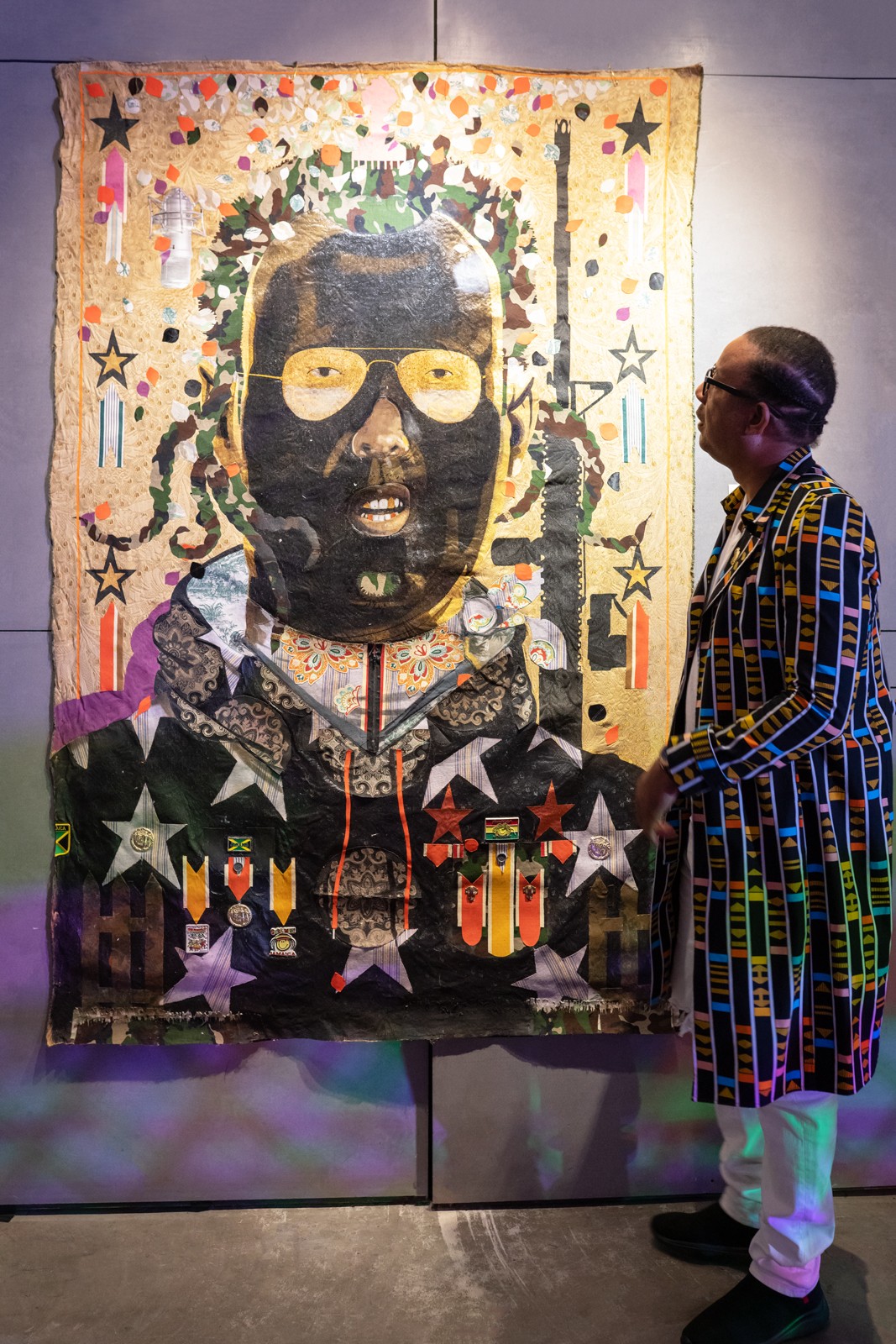
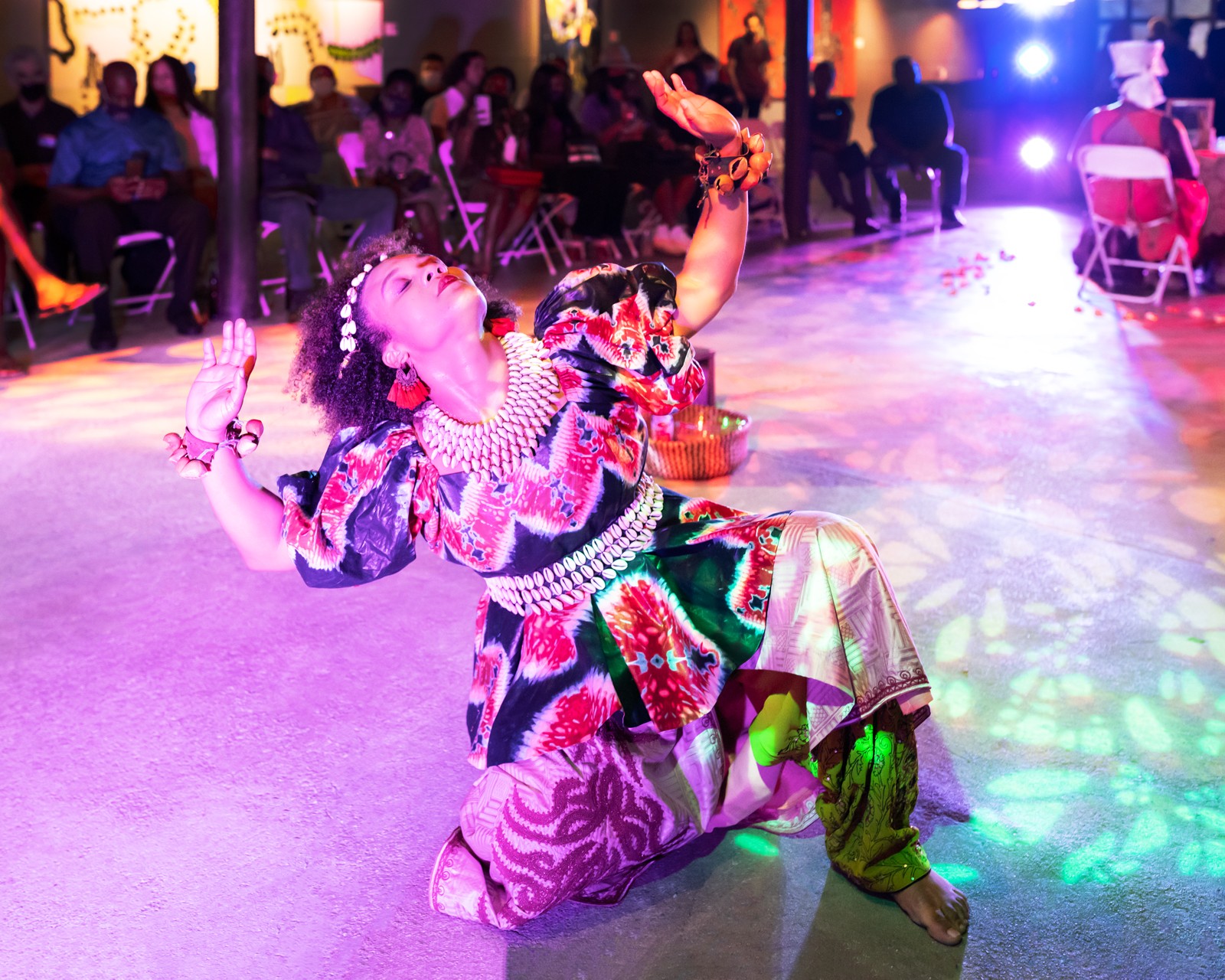
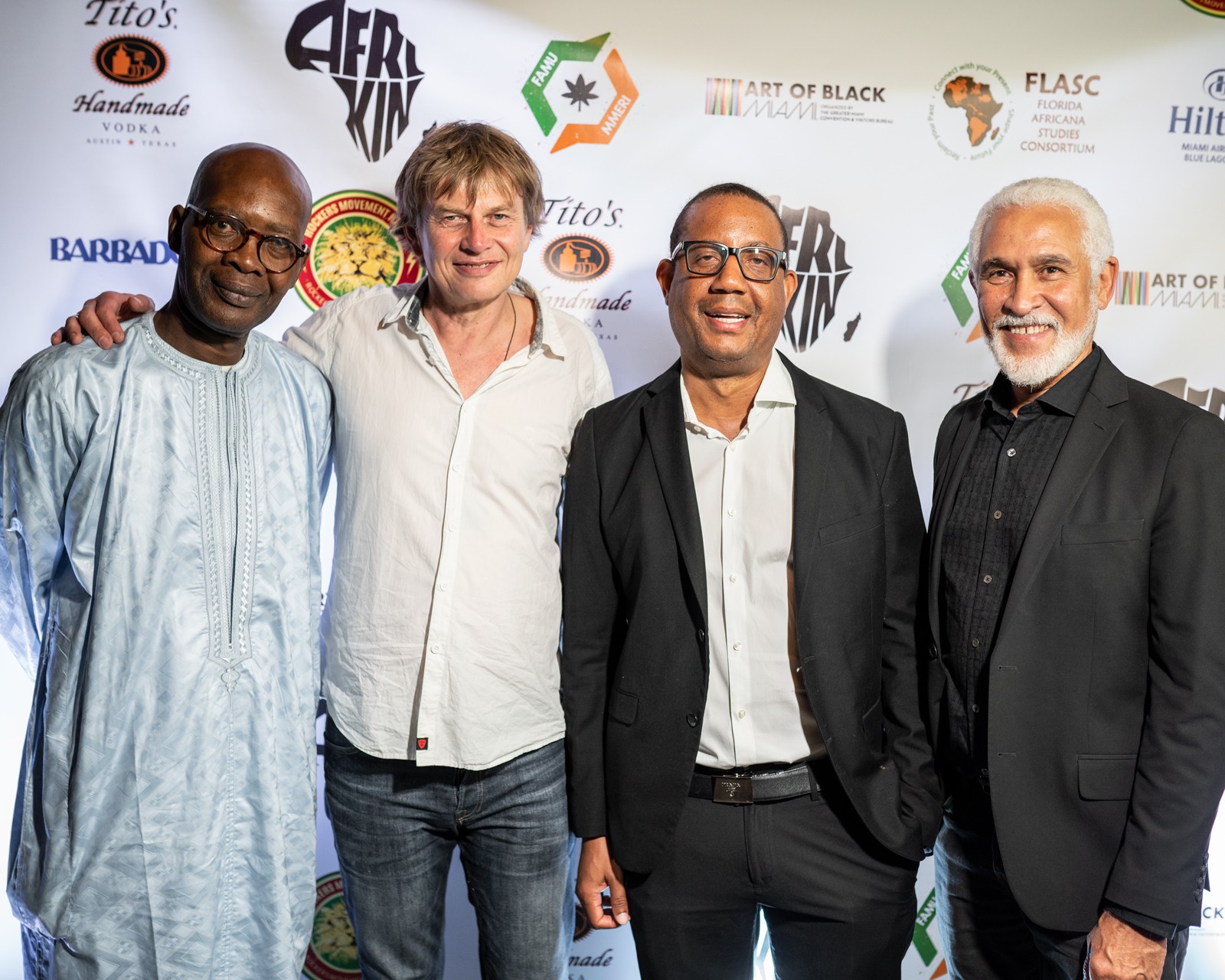
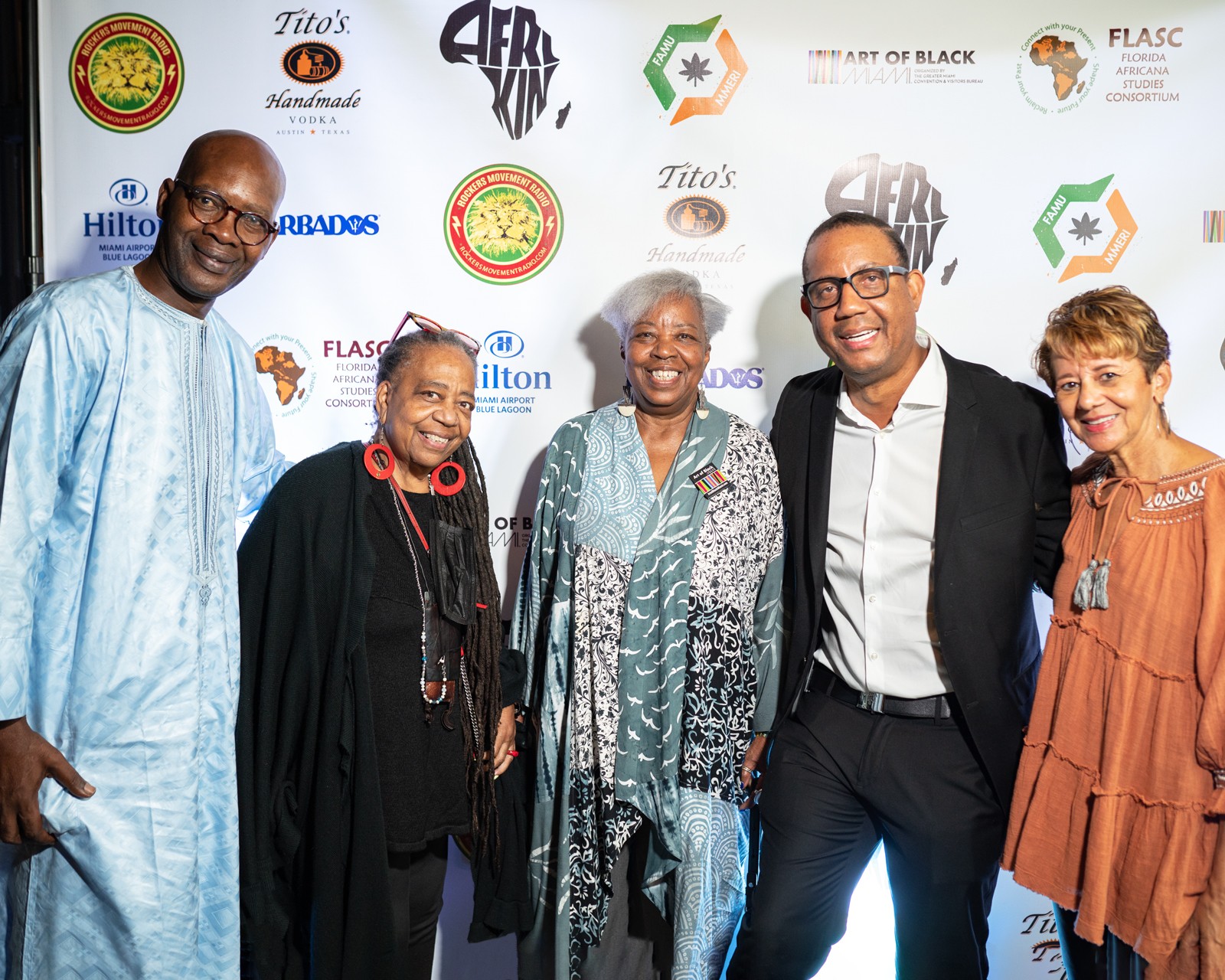
Learning and unlearning are both critical parts of growth – can you share a story of a time when you had to unlearn a lesson?
The past two decades have witnessed sweeping upheavals in all aspects of the art, entertainment and food industries and in the larger social environment. The emergence of the multiplatform scenario and the proliferation of lifestyle destinations in Miami have radically altered the face of entertainment districts.
In bygone years, when a single neighborhood was the unique destination across the region, it had its own magic and innate ability to promote social cohesion and integration in its own way.
But the multicultural and multi-ethnic situation, while obliterating this unique advantage, has brought in its wake alternative choices to the people. What was a socialite single destination has now become a multiplicity of choice making it a buyer’s market. The resulting pluralism and diversity in lifestyle offerings are the welcome features of the multiplatform world.
The Nature of Competition
As result, the aforementioned intermediaries—the gallery owners, restaurant and entertainment providers —now compete for the dollars that are spent by consumers of all sizes.
The nature of competition is changing as quickly as the players adapt to the new technologies, new markets and new preferences of their consumers. As the market becomes more segmented, the competition becomes more audience-specific.
I had to adjust my approach as local gallery owners who are also good acquaintances will be AfriKin’s primary competitors, whether they are network affiliates or independent. Local operators may also cause some concern until AfriKin concludes the integration of its three components: Visual arts, cultural industries and infotainment.
However, I understand the natural inclination for each of these providers to reflect their audience. Therefore, I strongly believe that culturally competent space programming will set AfriKin apart from its competitors almost immediately.
Similarly, I had to unlearn the concept of competitors as there are no primary competitors for AfriKin model because of the integration strategy we have developed, AfriKin is a pioneer in six special markets.
• The Urban trendy market
• The international market
• The African American market
• The Caribbean/Asian Diaspora market
• The Latino market
• The Miami tourist market
Of course, one may find some local space scattered throughout the South Florida zones. But such spaces are few and far less effective because they are sporadic and do not have the art history competencies, the trust and loyalty of attendees. Most are short-term in their objectives, and short-lived as well. By comparison, AfriKin is committed to be long-term in its objectives and aspires to provide quality, informative programming for our special markets for years to come.
AfriKin answers these questions and solve these problems by existing.
Questions I spend daily pondering and do my best to answer through AfriKin…
● How do we know ourselves as people of African origin?
● As a people, what do we need to do to hold on to our valuables?
● How do we be vigilant about passing on who we are?
● How do we be vigilant to anchor ourselves in our small steps?
● How do we be vigilant about remembering those people that impacted our lives positively?
● What can we do to translate those teachings into creating ourselves into complex societies?
● What can we do to keep ourselves whole?
Contact Info:
- Website: https://store.afrikin.org
- Instagram: https://instagram.com/afrikinnation
- Facebook: https://facebook.com/afrikinnation
- Linkedin: https://www.linkedin.com/in/alfonsobrooks/
- Twitter: https://twitter.com/afrikinnation
- Youtube: https://www.youtube.com/c/AFRIKIN
Image Credits
Olga Barkar


